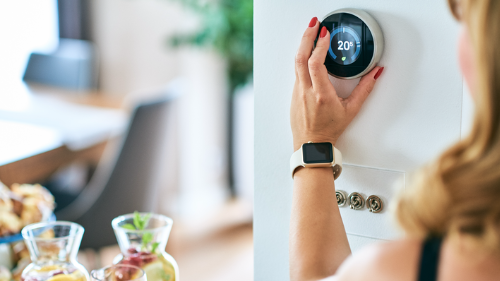
With rising energy costs and growing environmental concerns, maximizing energy efficiency in your home has never been more important. By implementing a few key strategies, you can significantly reduce your heating and cooling costs while also minimizing your carbon footprint.
This blog will guide you through practical tips to enhance energy efficiency, ensuring your home remains comfortable year-round without breaking the bank.
Schedule Service TodaySchedule an Appointment
Importance of Energy Efficiency
Energy efficiency not only helps reduce utility bills but also contributes to a more sustainable environment.
Efficient use of energy can lower greenhouse gas emissions, decrease reliance on fossil fuels, and extend the lifespan of your HVAC system.
Here are some essential tips to help you achieve these goals.
Regular Maintenance of HVAC Systems
Ensuring your HVAC system is well-maintained is crucial for optimal performance and energy efficiency.
1. Schedule Annual Tune-Ups:
Have a professional inspect and service your HVAC system annually to keep it running efficiently.
2. Clean or Replace Filters:
Dirty filters can obstruct airflow and reduce efficiency. Replace or clean filters every 1-3 months.
3. Inspect Ductwork:
Check for leaks or gaps in the ductwork and seal them to prevent energy loss.
Upgrade to Energy-Efficient Equipment
Investing in modern, energy-efficient HVAC equipment can lead to substantial savings over time.
1. High-Efficiency HVAC Units:
Look for units with a high Seasonal Energy Efficiency Ratio (SEER) or Annual Fuel Utilization Efficiency (AFUE) rating.
2. Programmable Thermostats:
Install a programmable thermostat to automatically adjust the temperature based on your schedule, reducing energy use when you’re not home.
3. Smart Thermostats:
Consider upgrading to a smart thermostat that learns your preferences and adjusts settings for maximum efficiency.
Enhance Home Insulation
Proper insulation helps maintain indoor temperatures, reducing the workload on your HVAC system.
1. Insulate Attics and Walls:
Ensure your attic and walls are adequately insulated to prevent heat loss in winter and heat gain in summer.
2. Seal Windows and Doors:
Use weather stripping and caulk to seal gaps around windows and doors, preventing drafts and energy loss.
3. Install Energy-Efficient Windows:
Consider replacing old windows with energy-efficient models that have low-emissivity (Low-E) glass.
Utilize Natural Energy Sources
Take advantage of natural energy sources to reduce reliance on your HVAC system.
1. Passive Solar Heating:
Utilize sunlight by opening curtains and blinds during the day to naturally warm your home in winter.
2. Shading and Ventilation:
Use shades, blinds, and ventilated attics to keep your home cool in the summer, reducing the need for air conditioning.
Adopt Energy-Saving Habits
Simple changes in daily habits can contribute to significant energy savings.
1. Set Temperature Wisely:
Set your thermostat to 68°F in winter and 78°F in summer when you’re home, and lower or raise it when you’re away.
2. Use Ceiling Fans:
Ceiling fans can help circulate air, making your home feel cooler in the summer and warmer in the winter.
3. Unplug Electronics:
Unplug electronics and appliances when not in use to prevent “phantom” energy consumption.
Conclusion
Maximizing energy efficiency in your home involves a combination of regular maintenance, smart upgrades, effective insulation, and energy-conscious habits.
By implementing these tips, you can significantly reduce your heating and cooling costs, enhance comfort, and contribute to a more sustainable environment.
Embrace these strategies to create an energy-efficient home that benefits both your wallet and the planet.
Schedule Your Service Today
